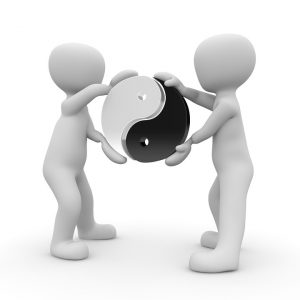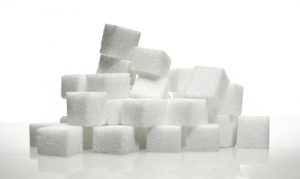Unpacking Emotional Weight
In the vast tapestry of human existence, emotions play a profound role. They color our experiences, shape our perceptions, and define the very essence of our being. Emotions can be light and fleeting, like the delicate flutter of a butterfly’s wings, or they can be heavy burdens that weigh us down, affecting our thoughts, actions, and overall well-being. In this article, we embark on a journey to unpack the emotional weight that we carry, exploring the significance of this burden and how we can navigate its depths.
Emotional weight, often referred to as emotional baggage, encompasses the accumulation of past experiences, traumas, and unresolved feelings that we carry with us throughout our lives. These emotional imprints can stem from a variety of sources, such as childhood experiences, broken relationships, loss, or even societal pressures. While some emotions naturally ebb and flow, others can persist and become intertwined with our identity, casting a shadow over our present and future. So sometimes you might ask yourself why do I feel like a burden.
Recognizing and acknowledging the emotional weight we carry is the crucial first step toward reclaiming our emotional well-being. It requires courage to confront the often uncomfortable and complex emotions that lie dormant within us. However, by shining a light on these feelings, we begin to unravel the layers of our emotional baggage and gain a deeper understanding of ourselves.
Each person’s emotional weight is unique, shaped by their individual journey through life. What may seem insignificant to one person can be a profound source of pain for another. It is essential to approach this process with self-compassion, understanding that healing takes time and patience. Just as a wound needs care to mend, emotional wounds require gentle attention and self-care to begin the process of healing.
A Transformative Journey
Unpacking emotional weight involves introspection, self-reflection, and, in some cases, seeking support from trusted individuals or professionals. Through therapy, counseling, or support groups, we can create a safe space to explore our emotions openly and honestly. Sharing our burdens with others who can provide empathy, guidance, and validation can be immensely therapeutic, enabling us to gradually release the weight that we carry.
Furthermore, practicing mindfulness and self-awareness can help us navigate the intricate labyrinth of our emotions. By observing our thoughts and feelings without judgment, we develop the capacity to understand their origins and underlying patterns. This awareness empowers us to make conscious choices about how we respond to our emotions, rather than allowing them to dictate our lives.
It is important to note that unpacking emotional weight does not mean erasing or negating past experiences. Instead, it involves finding a healthy and balanced way to carry these experiences without being consumed by them. It requires forgiveness, both for ourselves and others, and a willingness to let go of what no longer serves us.
As we gradually release the emotional weight we carry, we create space for personal growth, resilience, and joy. We can cultivate healthier relationships, make better decisions, and embrace life with newfound vigor. The process of unpacking emotional weight is a lifelong journey, as we continue to evolve and encounter new challenges. However, by embarking on this path, we gain the tools and understanding to navigate the depths of our emotions with grace and compassion.
In conclusion, the weight of our emotions can either hinder or propel us forward in life. By consciously unpacking and addressing our emotional baggage, we embark on a transformative journey of self-discovery and healing. Let us embrace the courage to delve into the depths of our emotions, for it is through this exploration that we unlock the true essence of our humanity and find the freedom to live authentically.
Journeying Through the Complexity
As we continue our exploration of unpacking emotional weight, we come to realize that this process is not linear. It is not a straightforward path from burden to liberation. It is a complex, ever-evolving journey that requires patience, resilience, and self-compassion.
Along the way, we may encounter unexpected twists and turns. We may stumble upon emotions we thought were long buried or face new challenges that test our emotional resilience. It is during these moments that we must remember to be gentle with ourselves, embracing the process as an opportunity for growth and self-discovery.
One important aspect of unpacking emotional weight is learning to differentiate between what is ours to carry and what belongs to others. Often, we internalize the emotions and expectations of those around us, inadvertently adding to the weight we bear. By setting healthy boundaries and honoring our own emotional needs, we can begin to release the weight that is not truly ours, freeing ourselves to focus on our own healing and well-being.
Nurturing Self-Compassion
Another crucial element in this journey is cultivating self-compassion. We must learn to extend the same understanding, kindness, and forgiveness to ourselves that we would readily offer to a dear friend. Recognizing that we are human beings with flaws, vulnerabilities, and a capacity for growth allows us to approach our emotional weight with empathy and patience.
As we delve deeper into the layers of our emotional baggage, we may unearth profound insights and realizations. We may come face-to-face with wounds that require deeper healing or confront patterns that have perpetuated our emotional struggles. This self-discovery can be both liberating and challenging, as it demands honesty, vulnerability, and a willingness to confront uncomfortable truths. Yet, it is in these moments of raw authenticity that true transformation can occur.
Throughout this process, it is essential to remember that we are not alone. Sharing our journey with trusted individuals who can offer support, guidance, and encouragement can make a world of difference. Whether it is a close friend, a therapist, or a support group, surrounding ourselves with a community of understanding individuals can provide the strength and perspective needed to navigate the depths of our emotions.
Discovering Healing Modalities
As we continue to unpack our emotional weight, we may find that certain practices or activities support our healing and growth. For some, it may be engaging in creative outlets such as writing, painting, or music. Others may find solace in physical activities like yoga, meditation, or exercise. Exploring different modalities can help us connect with our emotions in new and transformative ways, opening doors to healing that we may not have previously considered.
Ultimately, the process of unpacking emotional weight is a deeply personal one. It requires introspection, self-compassion, and a willingness to embark on a journey of self-discovery. It is an ongoing process that requires our commitment and dedication, but the rewards are immeasurable.

The Ongoing Process of Healing
So, let us embark on this transformative journey of unpacking emotional weight, and embracing the challenges and opportunities for growth that lie ahead. As we release the burdens we no longer need to carry, we make space for a lighter, more joyful existence—a life infused with authenticity, resilience, and profound emotional freedom.
In the continued pursuit of unpacking emotional weight, we encounter a powerful realization: healing is not a destination but an ongoing process. It is a lifelong commitment to nurturing our emotional well-being and tending to the wounds that may resurface from time to time.
As we traverse the terrain of our emotions, we may find that forgiveness becomes a vital component of our healing journey. Forgiveness is not about condoning or forgetting past hurts; rather, it is a conscious choice to release the grip that resentment and anger have on our hearts. By forgiving ourselves and others, we can unburden ourselves from the weight of grudges and create space for healing and growth.
Moreover, the act of self-forgiveness is an integral part of the healing process. We often carry guilt and shame for past actions or perceived shortcomings, allowing these emotions to weigh us down. But self-forgiveness allows us to embrace our imperfections and acknowledge that growth is a natural part of being human. It is through self-forgiveness that we can move forward with compassion and a renewed sense of self-worth.

However, it is equally important to remember that the responsibility for our emotional well-being ultimately lies within ourselves. We are the authors of our own healing narrative. Taking ownership of our emotions and actively participating in our healing journey empowers us to make choices that align with our true selves, rather than perpetuating patterns that hinder our growth.
Self-Care and Gratitude
In our quest to unpack emotional weight, self-care emerges as a fundamental practice. Self-care encompasses activities and habits that nurture our physical, mental, and emotional well-being. Engaging in activities that bring us joy, practicing mindfulness, setting healthy boundaries, and prioritizing rest and rejuvenation are all acts of self-care that replenish our energy and support our emotional equilibrium.
Additionally, developing a practice of gratitude can profoundly impact our emotional landscape. Gratitude shifts our focus from what is lacking to what is abundant in our lives. It allows us to appreciate the present moment, cultivating a sense of contentment and diminishing the weight of negative emotions. By acknowledging and expressing gratitude for the blessings, big and small, we invite positivity and emotional lightness into our lives.
Ultimately, the journey of unpacking emotional weight is a deeply personal and transformative one. It requires self-reflection, vulnerability, and a commitment to ongoing growth. As we navigate the intricate landscape of our emotions, we gain a deeper understanding of ourselves, forge a stronger connection with others, and cultivate a profound sense of inner peace.
So, let us embark on this transformative journey with courage and resilience. Let us face our emotions head-on, embracing the challenges and opportunities they present. By unpacking our emotional weight, we liberate ourselves from the shackles of the past, allowing our authentic selves to shine brightly in the present moment. It is through this courageous exploration that we find the freedom to live a life filled with emotional authenticity, compassion, and profound joy.






 The philosophy and practice of feng shui is to contribute to the well-being of individuals and communities through the art of placement, for balanced energy flow. All societies possess in some form or another the knowledge that feng shui contains.
The philosophy and practice of feng shui is to contribute to the well-being of individuals and communities through the art of placement, for balanced energy flow. All societies possess in some form or another the knowledge that feng shui contains. When these positive and negative forces are balanced, we experience well-being. When one dominates, the imbalance can be harmful to well- being. While yin and yang are opposites, they are nevertheless inter-connected. Without the concept of ‘soft,’ we wouldn’t be able to truly understand ‘hard.’
When these positive and negative forces are balanced, we experience well-being. When one dominates, the imbalance can be harmful to well- being. While yin and yang are opposites, they are nevertheless inter-connected. Without the concept of ‘soft,’ we wouldn’t be able to truly understand ‘hard.’


 Phosphoric Acid: May interfere with the body’s ability to use calcium, which can lead to osteoporosis or softening of the teeth and bones. Phosphoric acid also neutralizes the hydrochloric acid in your stomach, which can interfere with digestion, making it difficult to utilize nutrients.
Phosphoric Acid: May interfere with the body’s ability to use calcium, which can lead to osteoporosis or softening of the teeth and bones. Phosphoric acid also neutralizes the hydrochloric acid in your stomach, which can interfere with digestion, making it difficult to utilize nutrients. Caffeine: Caffeinated drinks cause jitters, insomnia, high blood pressure, irregular heartbeat, elevated blood cholesterol levels, vitamin and mineral depletion, breast lumps, birth defects, and perhaps some forms of cancer.
Caffeine: Caffeinated drinks cause jitters, insomnia, high blood pressure, irregular heartbeat, elevated blood cholesterol levels, vitamin and mineral depletion, breast lumps, birth defects, and perhaps some forms of cancer.
 36 people sure don’t sound like many but wait, it gets worse, only 23 total were actually given sucralose for testing and here is the real killer:
36 people sure don’t sound like many but wait, it gets worse, only 23 total were actually given sucralose for testing and here is the real killer: There is no question that sucralose starts off as a sugar molecule, it is what goes on in the factory that is concerning. Sucralose is a synthetic chemical that was originally cooked up in a laboratory. In the five-step patented process of making sucralose, three chlorine molecules are added to a sucrose or sugar molecule. A sucrose molecule is a disaccharide that contains two single sugars bound together; glucose and fructose.
There is no question that sucralose starts off as a sugar molecule, it is what goes on in the factory that is concerning. Sucralose is a synthetic chemical that was originally cooked up in a laboratory. In the five-step patented process of making sucralose, three chlorine molecules are added to a sucrose or sugar molecule. A sucrose molecule is a disaccharide that contains two single sugars bound together; glucose and fructose.
 Herbal health products or supplements cannot affect the way the body processes drugs. The use of complementary and Herbal Products by the public in the United States increased from 33.8 to 42.1 percent from 1990 to 1997(1), and individual use of herbal products users was reported as ranging from 12.1 to 26 percent (1-3). Gaedeke et al. reported that 29 percent of a group of college students used herbal products (4).S o why not to try alternative medicine for good health, Try Home herb’s best complementary and Herbal Products the best, safe, effective, rapid-acting, non-sedating supplement and Nutritional Products especially the products are made to solve the health-related problems that you might have, These problems may be related to Allergies, Weight & Fat Loss, Bodybuilding, General Health and etc. For any of these related Problems Concern with not only the Nutrition and Supplements of the Homeherb but also get the Suggestions and Comments from the Ailments segment of Homeherb.com. take a closer look to the review of these listed products that they are outstanding in performing well:
Herbal health products or supplements cannot affect the way the body processes drugs. The use of complementary and Herbal Products by the public in the United States increased from 33.8 to 42.1 percent from 1990 to 1997(1), and individual use of herbal products users was reported as ranging from 12.1 to 26 percent (1-3). Gaedeke et al. reported that 29 percent of a group of college students used herbal products (4).S o why not to try alternative medicine for good health, Try Home herb’s best complementary and Herbal Products the best, safe, effective, rapid-acting, non-sedating supplement and Nutritional Products especially the products are made to solve the health-related problems that you might have, These problems may be related to Allergies, Weight & Fat Loss, Bodybuilding, General Health and etc. For any of these related Problems Concern with not only the Nutrition and Supplements of the Homeherb but also get the Suggestions and Comments from the Ailments segment of Homeherb.com. take a closer look to the review of these listed products that they are outstanding in performing well: Hoodia Gordonii
Hoodia Gordonii
 Charcoal
Charcoal

 Our bodies are designed to overcome disease, but when they become overwhelmed with toxins, our resistance fails. The insurance industry dictates which profitable protocol is acceptable, and since most people have bought into the insurance lottery, they are trapped in this corrupt system.
Our bodies are designed to overcome disease, but when they become overwhelmed with toxins, our resistance fails. The insurance industry dictates which profitable protocol is acceptable, and since most people have bought into the insurance lottery, they are trapped in this corrupt system.
 You might also wish to avoid years old going on a diet.
You might also wish to avoid years old going on a diet. Extreme dieting may also impact your thoughts.
Extreme dieting may also impact your thoughts.
 Bonsai trees are shaped into intricate styles – it may take years to achieve the desired shape. Once the initial shape has been obtained, the tree is continually trimmed to maintain the design. Bonsai is a fascinating hobby that takes time to perfect but is challenging and rewarding.
Bonsai trees are shaped into intricate styles – it may take years to achieve the desired shape. Once the initial shape has been obtained, the tree is continually trimmed to maintain the design. Bonsai is a fascinating hobby that takes time to perfect but is challenging and rewarding. The Koten style is a tree with the traditional wider bottom and tapering top.
The Koten style is a tree with the traditional wider bottom and tapering top.